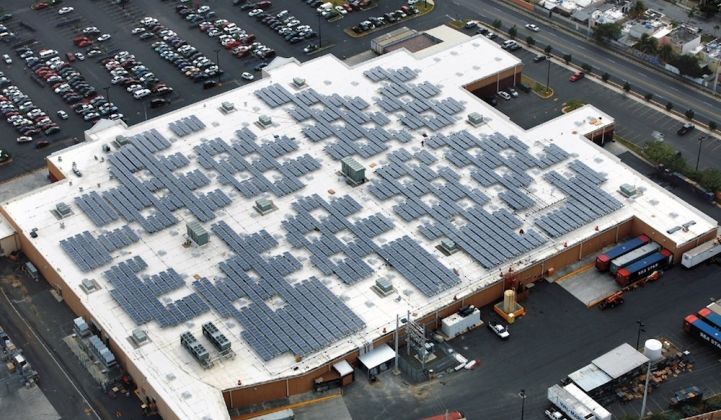After seven fires broke out on Walmart roofs between 2012 and 2018, the retail giant is suing Tesla over what Walmart calls “systemic, widespread failures” in properly installing and maintaining solar systems on hundreds of its stores in the U.S. Those failures breached 244 solar and storage contracts signed with Tesla, Walmart said.
The lawsuit, filed with the New York Supreme Court on Tuesday, detailed numerous fires across the country that Walmart alleges were connected to Tesla solar panels. After Tesla agreed to de-energize all of Walmart’s systems in the early summer of 2018, another fire erupted that fall.
“To state the obvious, properly designed, installed, inspected, and maintained solar systems do not spontaneously combust,” reads the suit.
Instead, Walmart claims that “Tesla had engaged in widespread, systemic negligence and had failed to abide by prudent industry practices in installing, operating and maintaining its solar systems — conduct that greatly increased the risk of fire at Walmart sites.”
Tesla did not respond to immediate request for comment on the lawsuit.
Walmart’s suit spreads blame to SolarCity, which Tesla acquired in 2016, for “chaotic installation practices” that Tesla then failed to correct. Walmart said about 40 percent of the systems were installed in a one-year period, which the retailer alleged was too fast for “adequate quality-control checks or supervision protocols.”
According to the suit, Tesla delivered 29 inspection reports to Walmart this month, identifying 157 “action items requiring repairs or replacement of system components.” Walmart said the reports identified issues such as abraded wires and broken solar panels.
An independent solar test lab told Greentech Media that solar systems contain numerous components that can lead to fires, such as wiring, inverters and combiner boxes. Much of that equipment is at higher risk for fire than solar modules themselves, the lab said.
While solar-related fires, especially of this magnitude, are uncommon, the high-profile lawsuit may cast a shadow on an industry defined by its hunger for growth. Tesla in particular has faced recent skepticism about its solar business, as the company shifted sales strategies and residential installations slid to their lowest levels in Q2 2019.
The controversy also has the potential to damper Walmart’s goal to reach 100 percent renewable energy, which it announced in 2016. But Colin Smith, a senior solar analyst at Wood Mackenzie Power & Renewables, said the conflict is more likely to reduce corporate hesitancy about going renewable by demonstrating there's a "level of protection built into the system, which they otherwise might see as an unknown risk."
This year Walmart reported it had reached 28 percent renewable electricity with a goal of 50 percent by 2025. On-site renewable generation is just one part of the retailer’s 100 percent strategy, however, which also includes power-purchase agreements and wholesale power purchases.
A signatory of the RE100 group of companies pledging to achieve 100 percent renewable energy, Walmart joins a growing crop of corporations looking to acquire more clean energy to power operations.
This story has been updated.




